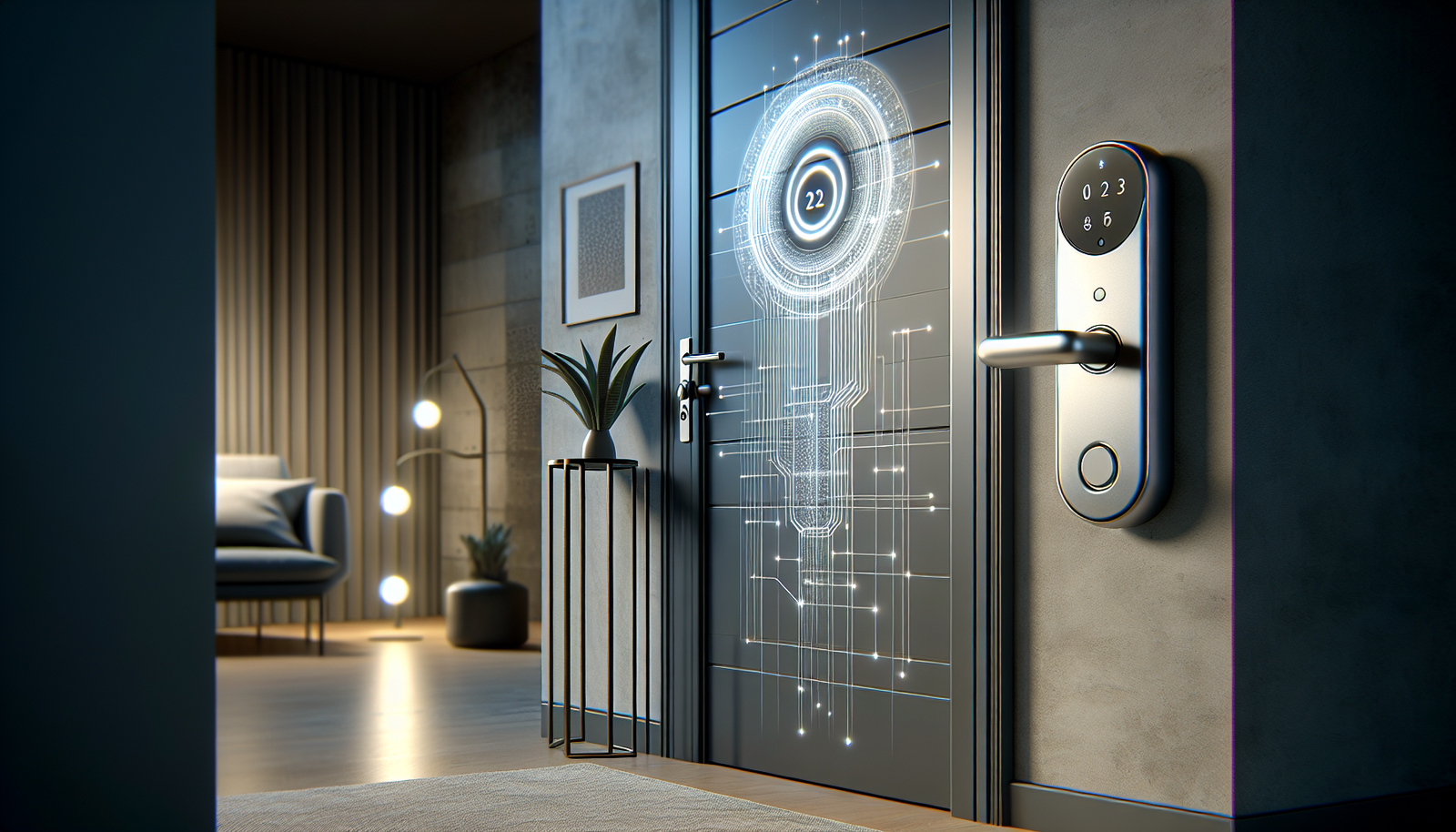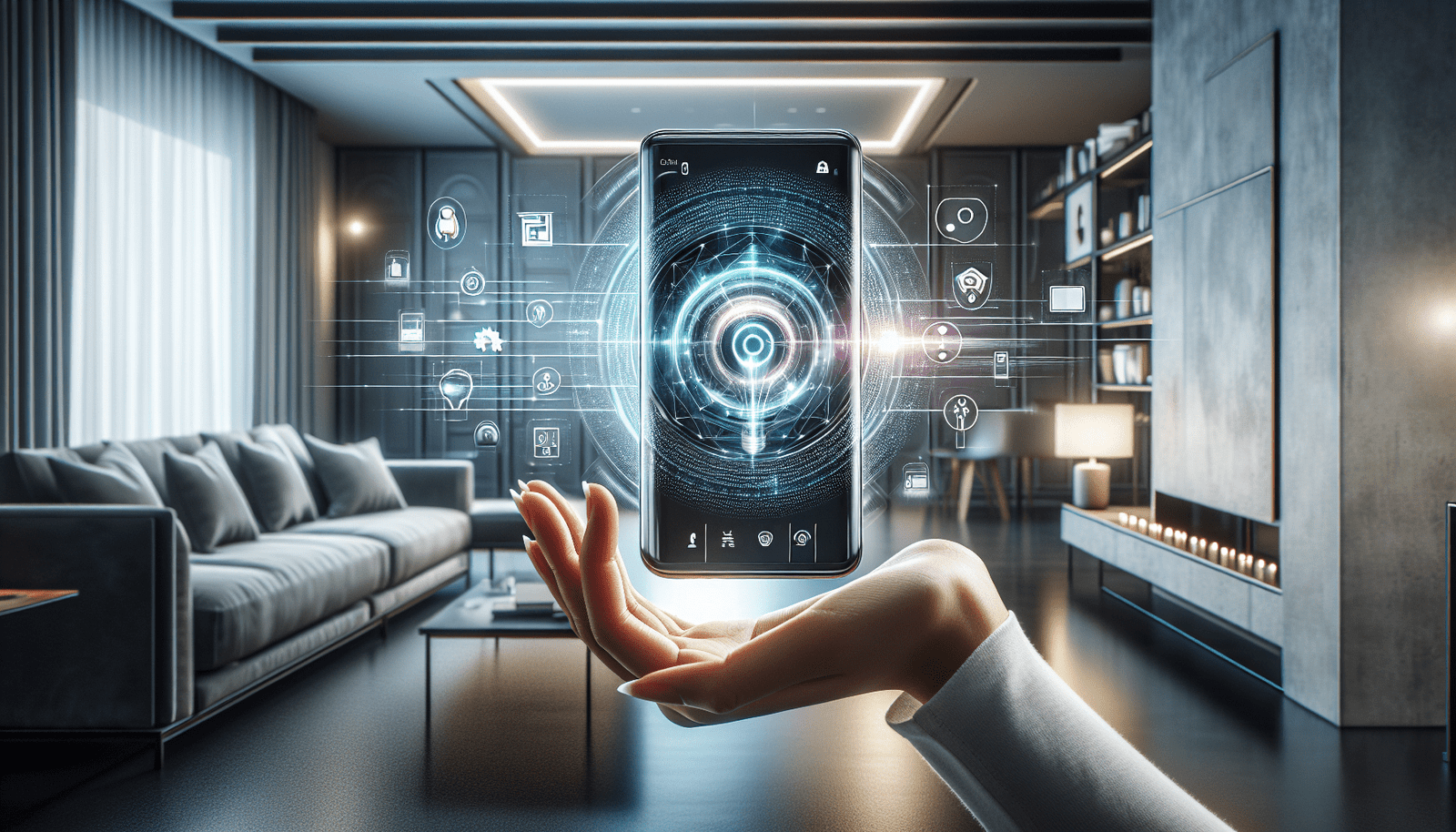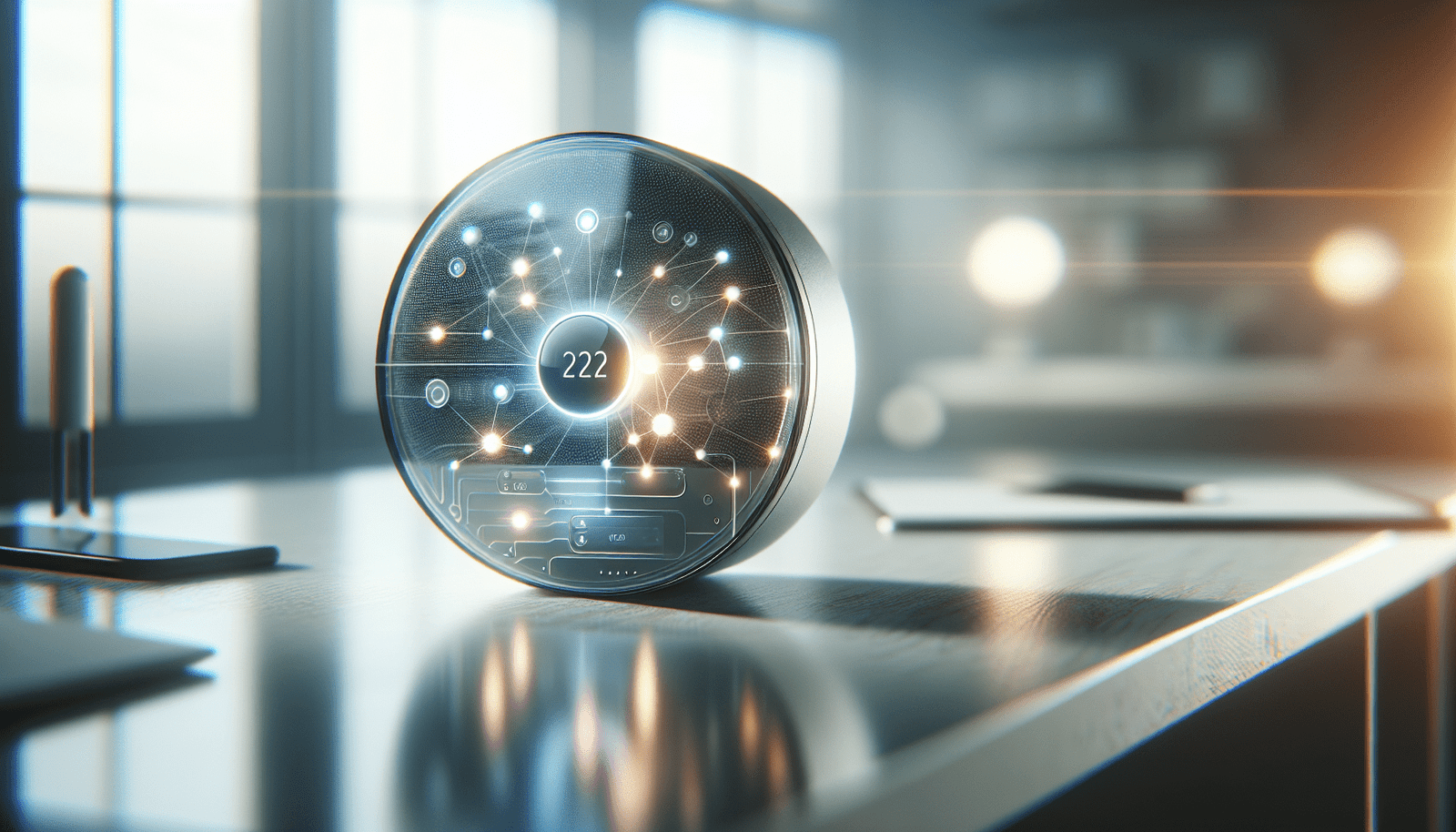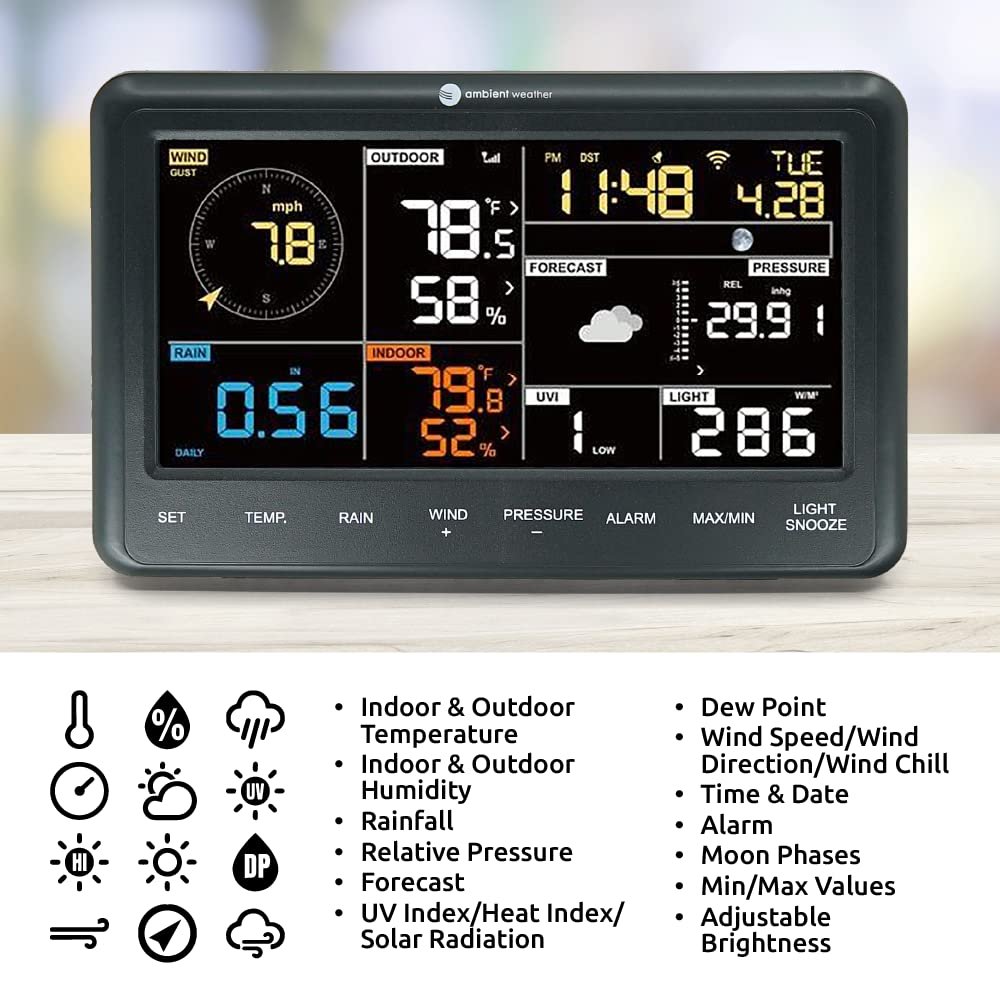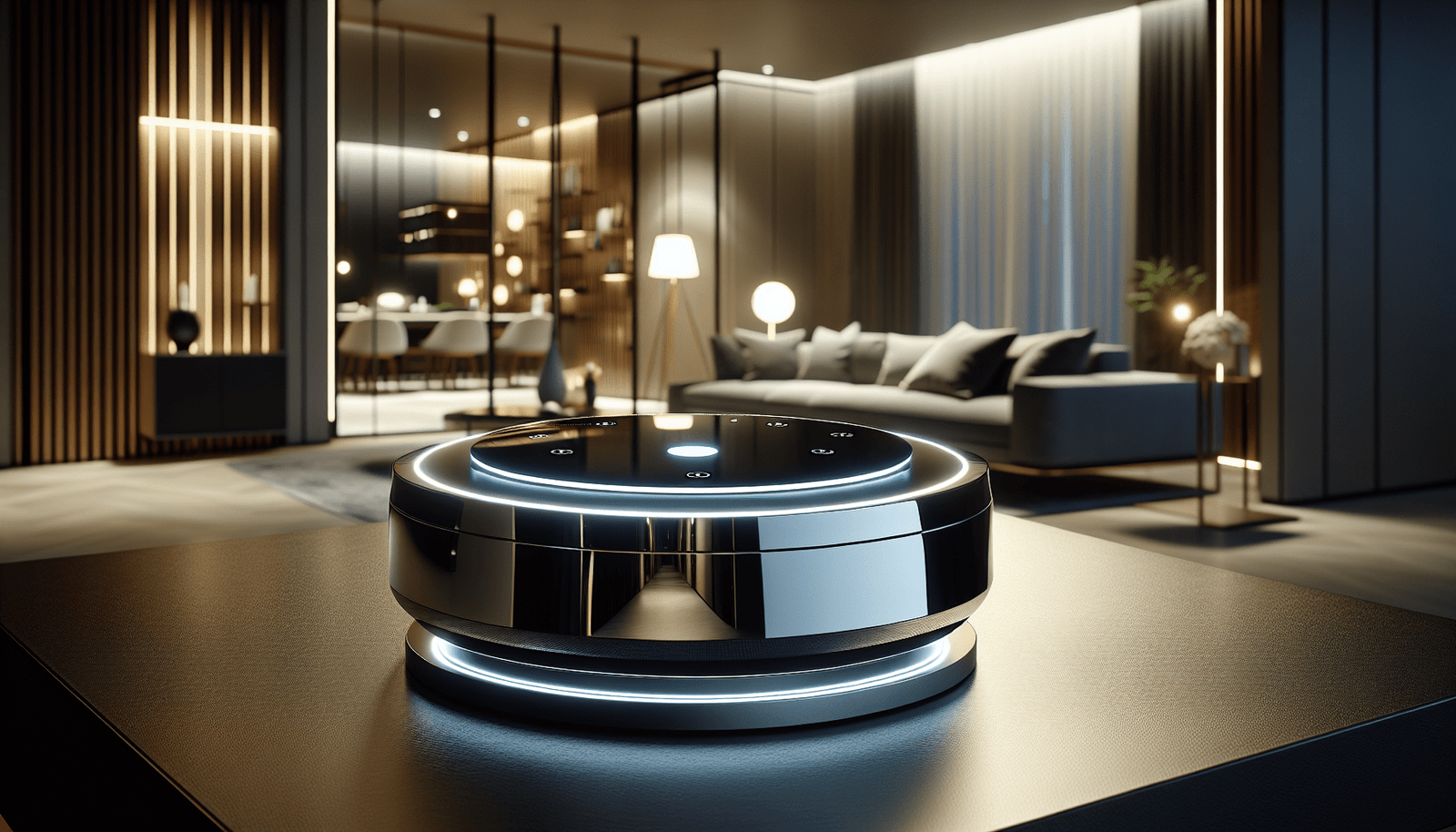Have you ever pondered how technology can revolutionize the security of your home? With the rise of smart home technology, your front door may soon be the most intelligent and secure part of your house. When it comes to safeguarding your dwelling, smart locks are paving the way for enhanced security and convenience. Leveraging advanced technologies, these locks are not only reshaping how we protect our homes but also how we interact with them daily.
What Are Smart Locks?
Smart locks are electronic locks that allow you to secure your doors without traditional keys. They offer unparalleled convenience by enabling remote access and the ability to track who enters and exits your home. With smart locks, homeowners can lock and unlock doors with a smartphone application, a key fob, or even voice commands, thanks to platform integrations with virtual assistants like Alexa, Google Assistant, and Siri.
These locks offer more than just keyless entry. Many models come with additional features such as integration with other smart home devices, automatic locking after a set period, and unlocking when your phone is within range, ensuring a seamless and efficient daily entry and exit.
The Advantages of Smart Locks
Convenience in Daily Life
With smart locks, there’s no need to carry a bulky keychain or worry about losing your keys. With just a smartphone, you can operate your door locks effortlessly. Imagine returning home with your hands full of groceries and unlocking your door without any hassle. Some locks even support geofencing, unlocking the door as you approach, which is a dream for anyone juggling kids or bags.
Enhanced Security Features
Traditional locks are susceptible to picking or bumping, but smart locks come with advanced encryption that increases their resilience against break-ins. Many models offer real-time notifications, so you know precisely when someone enters or exits your home. This is not only useful for keeping tabs on family members but also crucial for ensuring the security of your property.
Integration with Smart Home Ecosystems
Smart locks integrate seamlessly with various smart home platforms, enhancing their utility. They can work in conjunction with security cameras, lights, and other devices to create a comprehensive security system. For instance, you might configure your system to turn on lights and activate cameras upon unlocking the door, providing both security and a warm welcome.
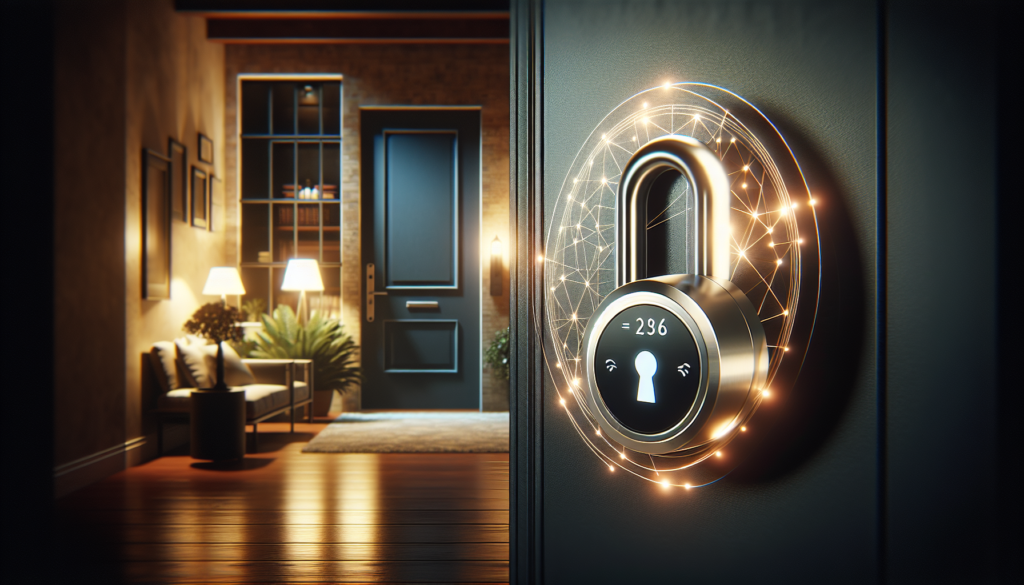
Cost and Value Considerations
Initial Investment vs. Long-term Benefits
The upfront cost of smart locks can vary significantly based on the features you desire. Prices range from $100 to over $300. While this might be higher than a traditional lock and key setup, consider the long-term benefits and peace of mind they offer. The ability to remotely manage your entries and exits and the added security features justify this investment.
Moreover, installing smart locks can increase your property’s value, an important factor for real estate investors and homeowners considering selling in the future. Enhanced security is a strong selling point in the modern real estate market.
Installation Costs and Ease
Most smart locks are designed for straightforward installation, often fitting existing deadbolts. This means, for many homeowners and renters, professional help is unnecessary, saving on additional costs. Many brands provide comprehensive guides and customer support to assist you through any hurdles, allowing even the least tech-savvy individuals to set up their system without a hitch.
Comparing Smart Lock Options
Features Comparison Table
To help you navigate the various options, here’s a comparison table highlighting key features of popular smart locks:
| Brand/Model | Key Features | Price Approximation | Integration | Power Source |
|---|---|---|---|---|
| August Smart Lock Pro | Remote access, DoorSense technology, Auto-Lock/Unlock | $230 | Alexa, Google Assistant, Apple HomeKit | Battery-operated |
| Schlage Encode | Built-in alarm, Keypad, Wi-Fi connectivity | $250 | Alexa | Battery-operated |
| Yale Assure Lock | Touchscreen keypad, Home automation support | $200 | SmartThings, Zigbee, Z-Wave | Battery-operated |
| Nest x Yale Lock | Nest ecosystem integration, Tamper alert | $280 | Google Assistant, Nest | Battery-operated |
As you review different smart locks, consider your specific needs. Whether you prioritize security features, seamless integration with existing smart home systems, or even design aesthetics, there’s a smart lock tailored to your lifestyle.
Real-World Use Cases
Imagine receiving an unexpected guest when you’re not home. With a smart lock, you can let them in remotely, monitoring their entry to ensure everything goes smoothly. Similarly, if you’re an Airbnb host, smart locks can simplify key exchanges and tracking guest check-ins and check-outs without physically being present.
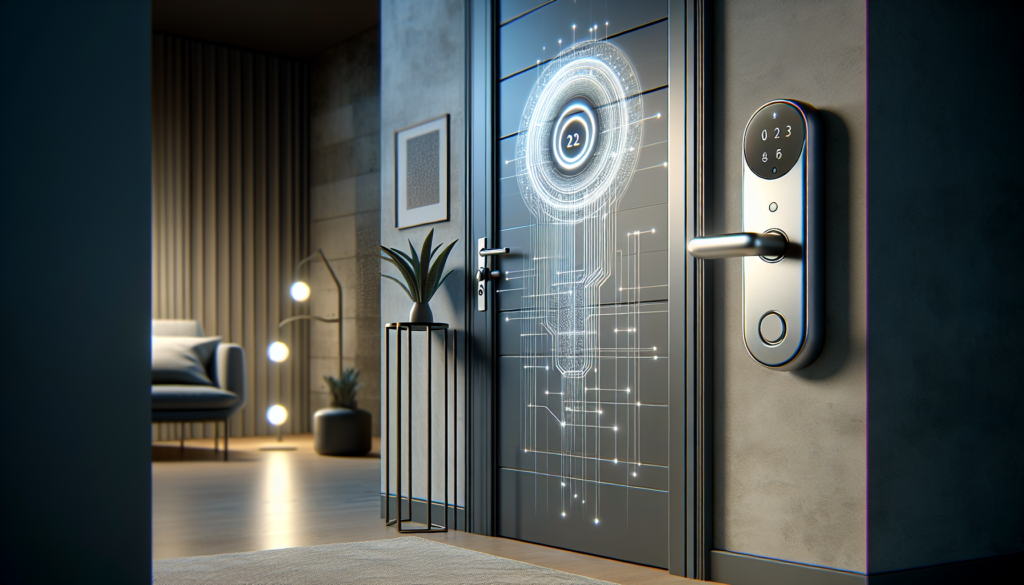
Practical Setup and Maintenance Guide
Installing Your Smart Lock
Most smart locks offer an installation process similar to that of a standard deadbolt. Here’s a basic guide to help you set up your smart lock:
-
Remove the Existing Deadbolt: Start by unscrewing and removing your current lock. Carefully detach it from the door without damaging the door or frame.
-
Install the New Lock Hardware: Insert the new smart lock’s hardware into the lock hole. Secure it with screws, ensuring it is properly aligned with the door jamb.
-
Attach the Smart Lock Mechanism: Depending on your chosen model, you will need to attach the electronic module and ensure its secure fit with the lock mechanism.
-
Connect to Your Smart Home System: Follow the lock’s pairing instructions to link it with your smartphone or smart home hub. This usually involves downloading the relevant app and following its guided setup.
-
Test the Lock: Finally, test the lock by locking and unlocking it through the app and manually to confirm proper functionality.
Maintenance Tips for Longevity
To ensure your smart lock performs optimally:
- Regularly Update Firmware: Smart locks periodically release updates to enhance security and functionality. Ensure your lock’s firmware is up-to-date.
- Check the Battery Life: Many smart locks are battery-operated, so be vigilant about maintaining charged batteries. Notifications are typically sent when power is low.
- Keep the Lock Clean: Dust and debris can affect the sensors and mechanical parts. Use a dry cloth to clean components regularly.
Security and Privacy Considerations
Security is paramount when it comes to smart home devices, and smart locks are no exception. Here’s how you can ensure your smart lock is as secure as possible:
Understanding Potential Risks
As with any connected device, smart locks have potential vulnerabilities. They could be susceptible to hacking attempts, especially if passwords are weak or systems are left outdated. Ensuring robust encryption and using strong, unique passwords is critical in safeguarding your home.
Best Practices for Security
- Use Multi-factor Authentication: For an added layer of security, enable two-step verification where possible. This can significantly reduce unauthorized access.
- Regularly Update Devices: Stay informed about the latest software updates and security patches for your device.
- Secure Your Network: Ensure your home network is secure by using strong passwords and keeping your router firmware updated.
Energy Efficiency and Sustainability
While primarily known for security enhancements, smart locks contribute to a more energy-efficient and sustainable home environment:
Reducing Consumption with Automation
Smart locks can be integrated into home automation systems, optimizing energy consumption. For example, linking your smart lock with smart lighting systems can ensure lights turn off when you leave, reducing unnecessary usage and contributing to a more sustainable lifestyle.
The Environmental Impact of Smart Technology
Smart locks contribute to waste reduction by eliminating the need for physical keys, which often end up in landfills. Additionally, they support a culture of mindfulness around resources, promoting eco-friendly living practices.
Compatibility and Connectivity
Ensuring Seamless Integration
When considering a smart lock, check its compatibility with existing devices and systems in your home. Many smart locks can connect to multiple platforms, offering flexibility. Determine if your lock will work with the systems you use, whether it’s Apple HomeKit, Amazon Alexa, Google Assistant, or others.
The Importance of Connectivity
Seamless connectivity ensures that your smart home devices can communicate with each other, enhancing home automation. A well-networked home allows you to unlock additional functionalities, streamlining your home experience and increasing security.
Exploring Future Trends in Smart Locks
The Next Generation of Smart Locks
Smart lock technology is advancing rapidly. Features such as biometric authentication, like fingerprint scanning and facial recognition, are emerging, offering even more secure and personalized access methods. As AI evolves, expect smart locks to become increasingly predictive, anticipating your home entries and exits.
The Broader Impact on Smart Home Development
Smart locks are just one component of the burgeoning smart home industry, representing the potential for technology to increase convenience and security in our daily lives. As smart home technology continues to evolve, so too will the possibilities for creating more efficient and harmonious living environments.
In conclusion, smart locks are revolutionizing home security, offering tailored solutions that fit diverse lifestyles and needs. They provide a blend of security, convenience, and tech-savvy integration that not only enhance your living situation but also prepare your home for the future. Now is the perfect time to consider these innovative devices as part of your home’s upgrade journey.
